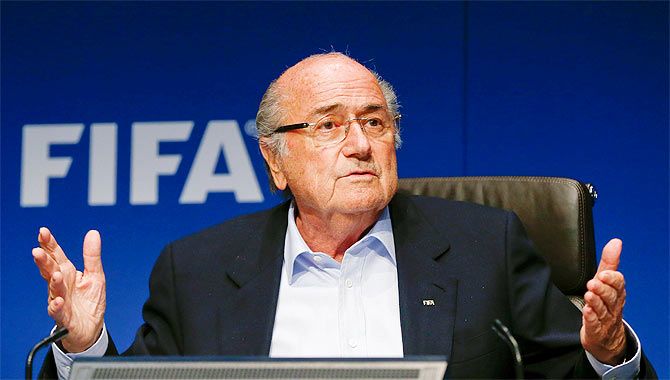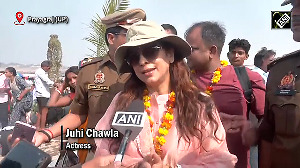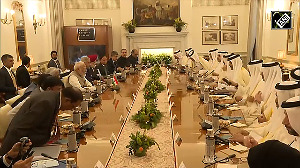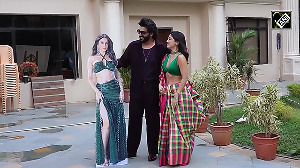
FIFA president Sepp Blatter, already facing a criminal investigation from Swiss prosecutors, may now come under scrutiny from his organisation's own ethics investigators if they find evidence of potential wrongdoing, according to FIFA's ethics procedure.
On Friday, the Office of the Attorney General of Switzerland (OAG) said it has opened a criminal investigation into Blatter on suspicion of criminal mismanagement and misappropriation of funds.
While Blatter, who denies wrongdoing, has not been arrested and no charges have been laid against him, FIFA's chief ethics investigator, Cornel Borbely, will examine the facts of the case before deciding whether to launch a formal probe into Blatter.
The move by the OAG to start a criminal investigation into Blatter is the latest episode to hit the troubled global governing body for football. In May, 14 soccer officials and sports marketing executives were indicted by the US Department of Justice on a variety of corruption charges.
A spokesman for Borbely said that the investigator is forbidden under FIFA rules from discussing the specifics of any particular case but offered an outline of the standard procedure.
"If there are facts on the table, Mr Borbely won’t hesitate for a second to open a preliminary investigation," the spokesman told Reuters late on Friday.
That preliminary investigation would not be formally announced and would consist primarily of a search for evidence - which in Blatter's case would likely involve requests to the OAG for further information.
“When the preliminary investigation leads to evidence there would be a formal investigation,” he said.
In some previous cases, officials placed under formal investigation have been suspended from football activities pending the outcome of the ethics probe.
Complicating the Blatter situation is that he has already stated he will leave office when a new FIFA president is elected on Feb. 26. If he were to be removed before then, Cameroon's Issa Hayatou would, as the most senior vice-president, take charge temporarily.
With FIFA grappling with various reform proposals before the February congress, the ascension of Hayatou, who is viewed by some within the football body as reluctant to embrace change, could be perceived by some as creating an obstacle for reforms.
But Borbely has frequently emphasized his own independence from FIFA's power structure, including Blatter.
In an interview with Reuters in March, Borbely said: "I am completely independent of any FIFA official, otherwise I couldn't and wouldn't do this job. Nobody interferes.
"I run my own law firm and I don't take any orders from FIFA - none whatsoever. I alone decide whether to open, conduct and conclude an investigation.
"I can't disclose details of how often I have met with Sepp Blatter but my contacts are limited to purely professional encounters. He has no authority to give directives to me," added Borbely.
FIFA declined to comment further on the Blatter case when contacted on Saturday. Blatter's Swiss lawyers did not immediately respond to a request for comment.
The OAG said its investigation against Blatter focused on a 2005 FIFA contract with the Caribbean Football Union, then headed by Trinidad football baron Jack Warner, which was unfavourable for FIFA and had "violated his fiduciary duties".
Swiss prosecutors are also examining a "disloyal payment" of 2 million Swiss francs (£1.35 million) to UEFA President Michel Platini in February 2011.
Platini denied any improprieties about the payment which related to work he "carried out under a contract with FIFA."
The OAG said the payment related to work Platini had finished in June 2002.









 © 2025
© 2025